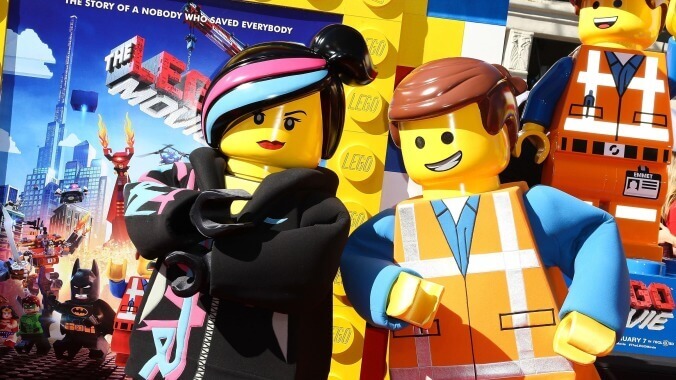10 years ago, The Lego Movie proved that a film based on a toy wasn’t such a bad idea after all
It took a decade for Hollywood to figure out what made The Lego Movie work
Film Features Lego
The idea of a movie based on a toy has always been shorthand for the complete creative bankruptcy of the film industry—an idea so craven and depressingly capitalistic that it seems to go against the very idea of art. And yet, for every five or so examples where that’s true, there’s an exception to the rule. Clue, for example, may be the very first theatrical film based on a toy (board games count), and it’s a cult classic now. A real cult classic, not a “I saw it a lot as a kid so that means it’s good” cult classic.
But these days, movies based on toys can be critically well-regarded hits—Barbie may not have gotten as many Oscar nominations as some people wanted, but it still got Oscar nominations. And the arguable start of this trend, if it even counts as a trend yet, was Phil Lord and Christopher Miller’s The Lego Movie, which is celebrating its 10th anniversary this month.
On paper, The Lego Movie seemed as craven as anything, since it’s not even telling an existing story like The Transformers did or like Clue (sort of) did. It’s just showing you how cool Lego bricks are and hoping you’ll buy some Lego sets (there was, obviously, a line of tie-in sets where you could build things from the movie, as antithetical as that seems to The Point of The Lego Movie). But it’s that Point that made The Lego Movie work.
It had something to say about Lego as a toy and reckoned with its legacy, using a goofy story about kids to validate Lego bricks as a freeform creative activity and a system that lets you build pre-designed structures and buildings. Both things are okay! It even acknowledged the existence of—if you pardon the embarrassing acronym—AFOLs, or Adult Fans Of Lego with its surprise live-action sequence near the end.
It’s not just that Lego sets are cool, it’s that it’s cool if Lego is important to you as a toy (or even as a totally normal hobby for adults). No less capitalistic, but it at least spoke to Lego fans in a way that resonated with people, and it could be taken as a “just enjoy what you enjoy” message that goes beyond Lego sets and could apply to any sort of thing that doesn’t have a “right way” to do it.
Greta Gerwig’s Barbie took a similar approach, focusing less on “Barbies are fun” and more on the legacy of Barbie, the ways that people play with Barbies, and what Barbie means to people. It’s hard to say if that makes up for the fact that it is still trying to sell you Barbies, or at least trying to promote the concept of buying Barbies, but just how much of a commercial we’re willing to accept in movies is a thing that everyone must decide for themselves.
The Lego Movie (and Barbie and Clue) at least struck a better balance than most movies based on toys by legitimizing both the toy and the fandom that people have for the toy. It’s a lot like why Marvel Studios was so much more successful at making superhero movies than everyone else: It took the source material seriously, but not so seriously that it treated it like an infallible and unimpeachable Good Thing. That’s where the sarcastic quippiness in Marvel movies comes from, with The Lego Movie’s equivalent being the way it uses the AFOL character as the villain.
These movies are—hopefully, optimistically—proof that no idea is necessarily a craven, creatively bankrupt money grab if it’s handled with some measure of thoughtfulness. That’s not to say that movies based on toys are inherently good, though, because there are so many more examples of bad ones than good ones. See, it’s not the premises that are craven, it’s usually the people at the higher levels of movie studios who sign off on bad decisions for questionable reasons. Battleship could’ve been a hit if someone involved had tried harder and made it into some kind of thoughtful exploration of growing up in a world put in a stranglehold by the military-industrial complex.
Actually, that sounds like it would’ve been a worse movie than the one we got. So maybe some movies based on toys are just an inherently bad idea, and it takes the perfect combination of “having something to say” and a relevant toy to really make sense.